By: Dr. Adian Husain
There are exemplary stories that were carried out by Islamic scholars, figures and leaders of Indonesian Muslims during the colonial period. In 1937, they founded a joint association called the Indonesian A’la Islamic Council (MIAI).
There were around 21 Islamic organizations that joined MIAI until 1942, including: Sarekat Islam (SI), Muhammadiyah, Nahdlatul Ulama (NU), Al-Islam (Solo), Association of Ulama (Majalengka), Hidayatul Islamiyah (Banyuwangi), Al-Khairiyah (Surabaya), Islamic Association (Persis), Al-Irsyad, Jong Islamitien Bond, Al-Ittahadul-Islamiyah (Sukabumi), Indonesian Islamic Party (PII), Indonesian Arab Party (PAI), All Aceh Ulama Association (Sigli), Deliberation of At-Thalibin (Kandangan, Kalimantan), Al-Jami’atul Washliyah (Medan), Nurul Islam (Cape Pandan Babel), Indonesian Ulema Council (Toli-Toli), Minahasa Muslim Association, Al-Khairiyah (Surabaya), Association Putera Bornes (Surabaya), Indonesian Men’s India Association, and the Indonesian-Malaysian Student Association in Egypt.
The purpose of MIAI is: “to discuss and decide on issues that are considered important for the benefit of the people and the Islamic religion, whose decisions must be upheld and carried out jointly by all the associations that are its members…”.
Also Read: The Forty-Four-Days of Glory: Azerbaijan’s Struggle for Justice and Peace
At that time there were debates about the problems of diversity of religious understanding among Muslims. According to the records of the historian Dr. Tiar A. Bahtiar, among the most debated themes include: the celebration of the Prophet’s Birthday, the celebration of Isra and Mi’raj, death ceremonies, talaffuzh bin-niyat, qunut dawn, talqin for dead bodies, reading Yasin for dead bodies, and the like.
These criticisms of the religious practices of traditional circles have often created unnecessary tension. Because of this, the leaders of various organizations, especially Muhammadiyah, NU and SI took the initiative to establish this federation to gather the strength of the Muslim Ummah, especially in the context of dealing with the colonialists.
MIAI existed until the arrival of the Japanese in 1942. Its name changed to Masyumi (Majelis Syuro Muslimin Indonesia). It was in this assembly that Muslim leaders continued their efforts to raise unity and fight against colonialism.
Why were Indonesian Muslims able to unite at that time? If we examine it, there were two main factors that prompted them to want and dare to carry out this unity movement. First, the high awareness of ukhuwah Islamiyah. That, fellow believers are brothers. Differences in understanding the issue of furu’iyyah do not invalidate the rights and obligations between brothers and sisters in the faith.
Also Read: Palestine Solidarity Month: A Collective Movement for Al-Aqsa and Palestine’s Freedom
Fellow believers are obliged to strengthen the bonds of brotherhood and also help each other: “And believers, men and women, some of them become helpers for others. They order those who are good and prevent evil, establish prayers, pay zakat, and they obey Allah and His Messenger. (QS at-Tauba: 71).
The Prophet described the condition of fellow believers as one body (kal jasadil wahid) or a building that strengthens each other (kal bunyan yasyuddu ba’dluhum ba’dla). In another hadith, Rasulullah SAW also likens Muslims to passengers who sail together to the middle of the ocean. Inside the ship, there was one passenger who intended to make a hole in his ship to take water. If all the passengers let that person make a hole in the boat, then he and all the passengers will perish.
Only believers can establish ukhuwah Islamiyah, because ukhuwah Islamiyah is a manifestation of faith. Ukhuwah Islamiyah requires sacrifice, more concerned with the interests of fellow believers than his own interests. The Prophet Muhammad emphasized: “Laa yu’minu ahadukum hattaa yuhibba liakhihi maa yuhibbu linafsihi.” (Not yet perfect faith one of you, so that he loves for his brother what is loved by himself.)
Second, understanding and awareness of “common challenges”. During the colonial era, the challenges were clear, right before our eyes. The invaders are physically entrenched. However, make no mistake, at that time many also felt comfortable with the colonial government. In fact, some became accomplices of the invaders. So, the efforts of the clergy to awaken the common challenge in the form of “colonial dangers” also need struggle.
Also Read: Hassan al-Turabi: A Controversial Thinker from Sudan
In this era, the scholars and leaders of the people should be able to formulate a common challenge. In accordance with the prayer that we read every day in QS Al-Fatihah, the common challenge comes from al-maghdlub and al-dhaalliin. Who belongs to the second category, needs to be clearly defined. They are people or groups who destroy human faith and morals.
This group produces continuously various concepts that drag people out of shirathal mustaqim. In order to be safe from the deceit of this angry and misguided group, serious study is needed. Because, the deceivers also work hard to mislead. Sometimes they conduct research and write high-quality scientific papers to produce concepts that damage faith and morals.
In carrying out their actions, these two destructive groups often cooperate with each other. Therefore, in fighting for truth and against tyranny, the best possible cooperation is needed.
And Allah only loves those who strive in His way in a neat row, like a solid building, which strengthens one another. (QS ash-Shaf: 4).
Also Read: Who Exactly is the RSF Group Shaking Sudan?
Hopefully, the Muslim Ummah at this time is able to formulate common challenges as an ummah and as a nation, so that they can formulate a correct and appropriate joint response. Amen. (T/RE1)
Mi’raj News Agency (MINA)
Also Read: The Two-State Solution (Palestine–Israel) in Historical Perspective






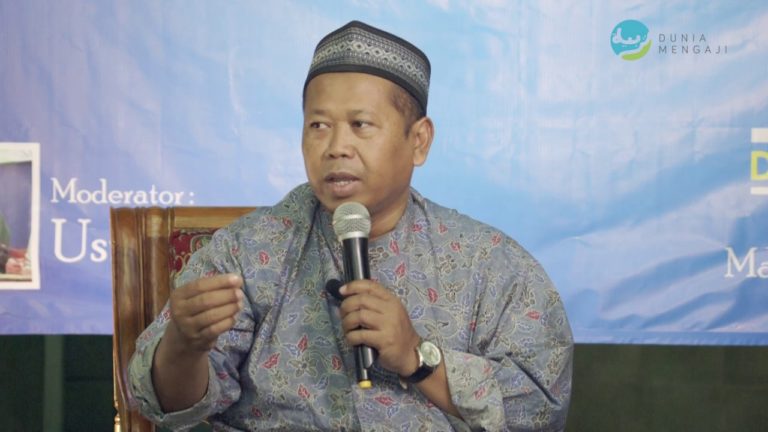

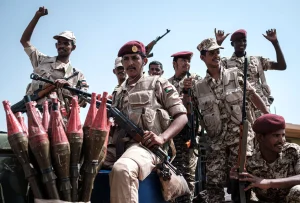
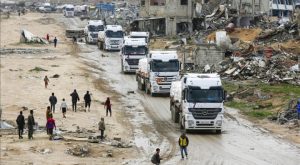


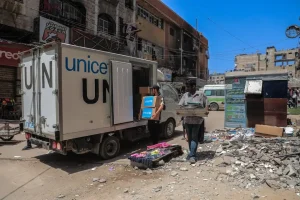
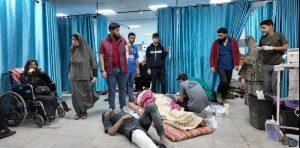
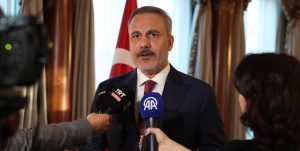

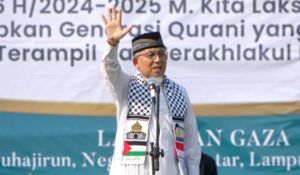
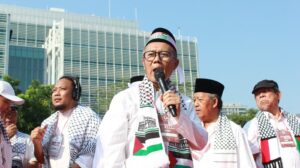
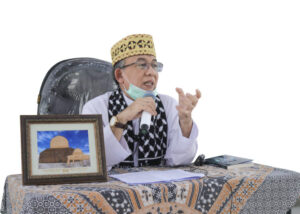
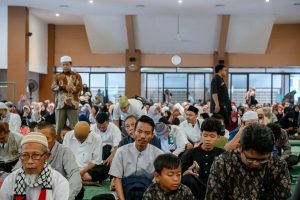
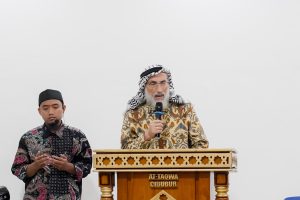






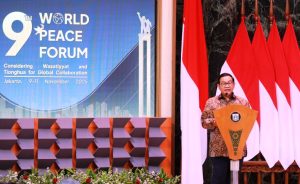






 Mina Indonesia
Mina Indonesia Mina Arabic
Mina Arabic